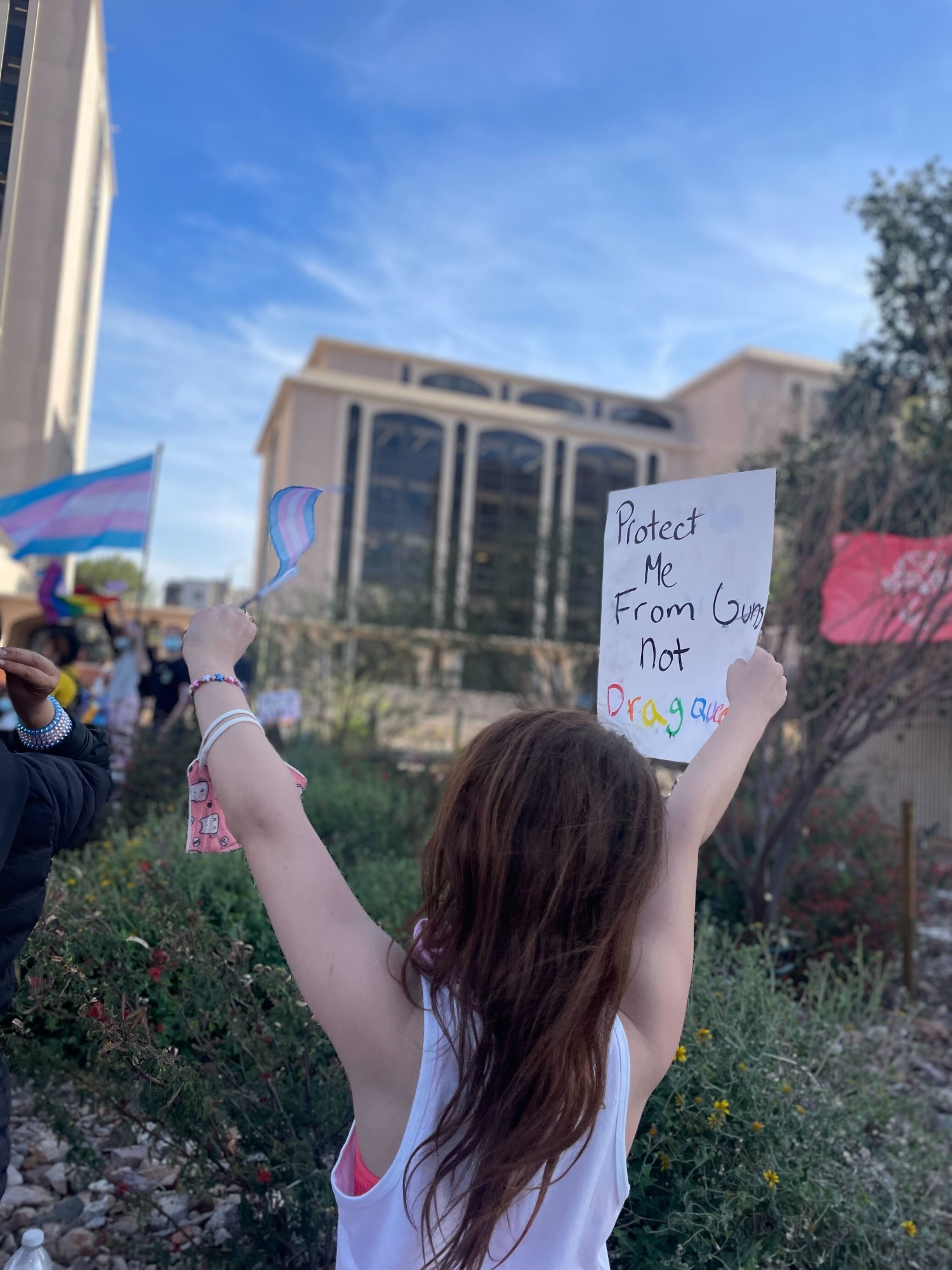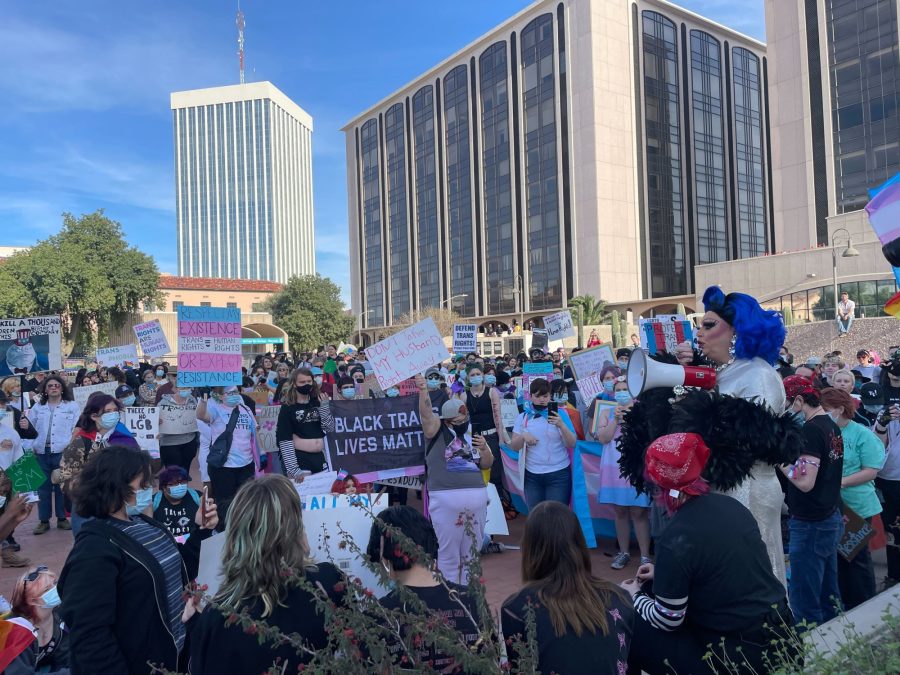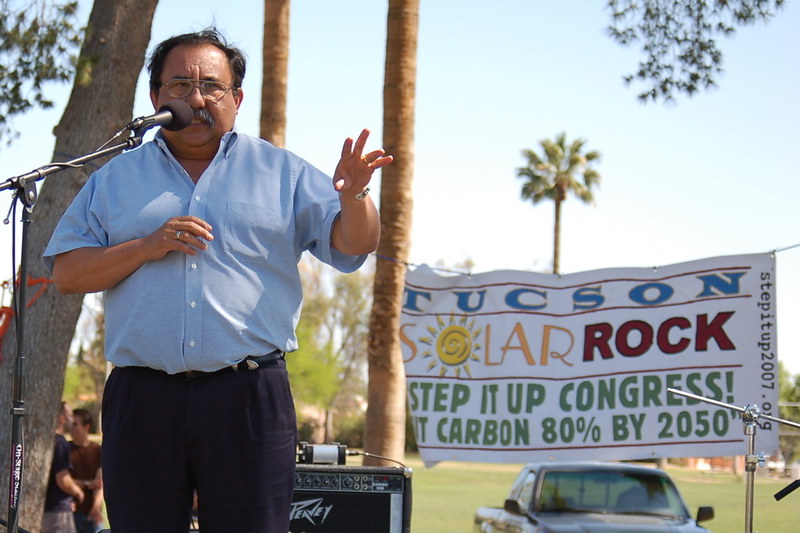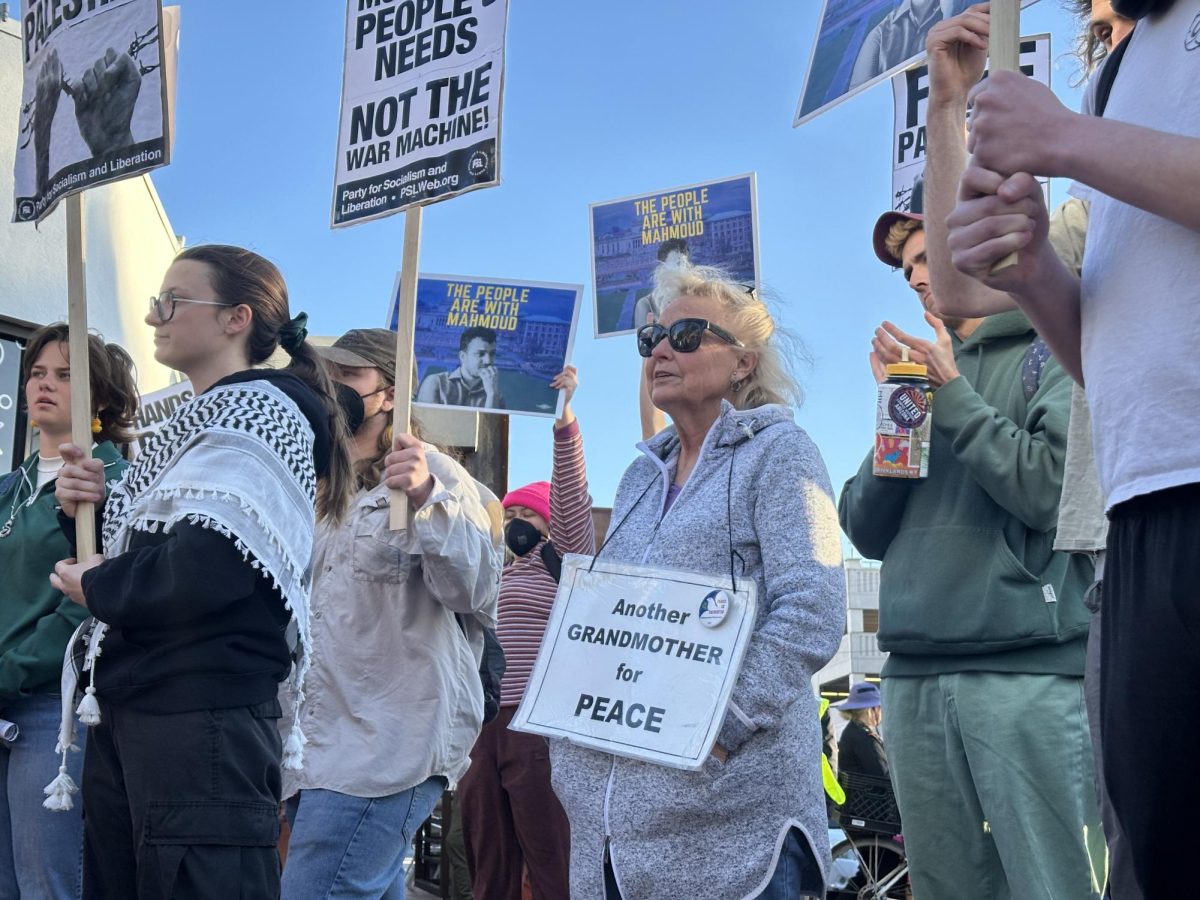Hundreds gathered at Tucson City Hall Friday, March 31, for International Transgender Day of Visibility to rally and protest recent anti-trans legislation that has been circulating nationwide.*
Countless chants rang through the crowd — a sea of colorful signs, flags and individuals holding each other for comfort as emotions ran high. One little girl balanced on the ledge of a planter holding a trans pride flag and a sign that read “protect me from guns, not drag queens.”
She leaned over, gesturing to the pointed tip of her flag, and said, “look, it’s sharp just in case!”
The protest was centered around a list of demands. The demands include making Tucson a sanctuary city for trans and gender non-conforming people, a commitment from city officials to refuse to pass or approve any anti-trans, anti-drag or anti-LGBTQ+ legislation or policy, funding for clinics and programs that provide resources to trans, queer and non-conforming people and legal protections for trans and gender non-conforming students and educators in schools.
The protest began with an open mic session in which audience members could share their experiences and grievances with the crowd. Many speakers chose to remain anonymous, with one noting, “I stand here now debating whether I should give you my identity for the safety of my job.”
The speaker went on to discuss their career working with LGBTQ+ youth.
“It is inexcusable that I have to see those that I love [defend] the very basic human right to exist. These kids should be worried about being kids. They deserve for their biggest worry to be a test or friendship drama, not that their government doesn’t want them to exist anymore,” they said.

Another speaker, Richard Barajas — self-described as Tucson’s oldest drag queen — emphasized civic engagement as the main way to promote their cause.
“The only way to overcome this is to vote,” Barajas said.
One protester, a University of Arizona student that goes by Harvey Harvey, said they don’t feel that Tucson will fall victim to anti-trans legislation.
“Even though Tucson has been historically blue and I don’t feel like there will be any restrictions on trans people here, it’s just important to show that if it does happen there will be resistance. There are people’s lives that would drastically change in harmful ways if there were restrictions on this community,” Harvey said.
One speaker — who asked to go by Kris to protect their identity — isn’t as confident about Tucson’s ability to avoid restrictions. Even though Arizona has flipped blue in recent major elections, Kris said they believe Democrats are just as guilty as conservatives when it comes to the attack on trans rights and other minorities.
They said although Republicans tend to be more straight forward in their views against trans people and the queer community, many elected Democrats across the country, “also have blood on their hands,” from passing legislation to increase police budgets and hire more cops, who have been shown to kill minorities at higher rates.
This statement is backed up by data collected in 2022 by The Washington Post, which found, “Black people are twice as likely as white people to be shot and killed by police officers.”
Kris emphasized the importance of recognizing intersectionality, stating that, “If they come for one of us, they’re coming for all of us,” and called for support of other leftist platforms such as, “free trans healthcare, free abortion on demand, clean drinking water, no cops and no border patrol […].”
“To do this,” Kris said, “we need militant mass movement […].”
The final speaker, Mikey, also touched on healthcare, but her experience was personal. Six months ago, she was diagnosed with a form of blood cancer. Despite an uphill battle to recover, Mikey doesn’t consider this her biggest challenge.
“The thing that scares me the most right now isn’t the active everyday threat of cancer trying to kill me. What truly scares the shit out of me every day is the hate and genocide happing against myself and my community,” Mikey said.
Mikey elaborated on her use of the term genocide, reciting the definition to the crowd from the United Nations website.
“Acts of genocides include killing members of a group, causing serious bodily or mental harm to members of a group, deliberately inflicting on the group conditions to bring about its destruction in whole or in part, imposing measures to attempt to prevent birth in a group or forcibly transferring the children of a group to another group,” Mikey said.
Mikey said she feels that genocide is what is happening to her community.
“They don’t want us out of the country, they want us off the planet,” Mikey said.
People interested in supporting the demands to protect trans people can sign a petition to do so.
*Editor’s Note: Certain names of those who spoke to the Daily Wildcat were omitted from this article in order to protect their identity and safety.
Follow Bailey Ekstrom on Twitter








